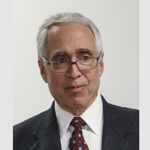Long Way From a Renaissance
![]()
hen I took to these pages in January 1999 to write "The Last Word," I was excited by the future. "Call it wishful thinking," I said in my first column, "but I believe the next five years are going to mark a renaissance in public service."
Some of my hopes panned out. Campaign finance reform passed in the wake of the Enron scandal, former House Speaker Newt Gingrich lost his platform for dismantling government, young Americans are volunteering for their communities and their country at record levels, and the automatic pilot civil service system is being swept away in a frenzy of reform.
But many of my worries remain. Even though campaign finance reform survived the Supreme Court, it might not survive the presidential candidates. Young Americans might be volunteering more than ever, but they show little interest in federal jobs. The civil service system is on its way out, but it is not yet clear whether federal managers can handle their new authorities at the Defense and Homeland Security departments. And Gingrich has been replaced by a new generation of privatizers and bureaucrat-bashers in the House and Senate.
To be perfectly blunt, we are still a long way from a renaissance. In fact, we may be sliding back into a public service Dark Ages during which the federal government no longer will be able to guarantee the delivery of vital services. A quarter century of benign and deliberate neglect has eviscerated government's capacity to carry out the promises Congress and presidents make.
Some of the damage came from well-intentioned reforms that created what my National Journal colleague Jonathan Rauch calls demosclerosis. Some came from years of budget cuts, pay freezes, employment caps, and disinvestment in core administrative systems. Some came from a slow but steady narrowing of the federal policy agenda, which in turn made government work less challenging. Some even came from deliberate efforts to prevent the faithful execution of the laws.
Whether the damage was accidental or intentional, the results have been cumulative and clear. At the top of the hierarchy, government has become a brief detour for Washington insiders who ask not what they can do for government, but what government can do for them. At the bottom, government has become a destination of last resort for talented Americans and a first choice for security seekers and weak performers who value a steady paycheck over challenging work. And government continues to produce more than enough error and scandal to create a target for those stocking up on ammunition in the war on fraud, waste and abuse. When agencies succeed, as many still do, it's often because of talented public servants such as this year's Service to America Medal winners. But even agencies that succeed do so in spite of revolving door leadership, antiquated systems and under-supported workers.
Americans want and deserve better. Much as conservative commentators babble about the need for smaller government, the public wants more of virtually everything that the government delivers. Most citizens believe the government has the right priorities but inefficient organizations, wrongly motivated workers, and a bad attitude. There is some truth to the complaints. Too many federal employees report problems getting access to training, information, and technology. Too many also report that past reform efforts have made their jobs more difficult, not less. Too many say they took their jobs in government for the security, paycheck and benefits, not the chance to accomplish something worthwhile. And too many still come to work in the morning for the compensation, not the public good.
Those who think President Bush's management agenda will fix the problems are mistaken. Despite the fine rhetoric about investing in human capital and tying budgets to performance, the Bush administration is unwilling to walk the talk with real money. Instead, the president's budget office has put its energies behind the ever-expanding effort to put federal jobs up for competition with private firms.
Unfortunately, the administration has learned the wrong lessons from past competitions. The key to saving money and improving performance is not competition at all. It is creating efficient organizations. But this administration is less inclined to boost efficiency in regulating industry or oil drilling, reducing toxic waste or in achieving a host of other once-admired goals.
Making government work starts with the basic belief that government should work. Unfortunately, many in and around the Bush administration believe that a government that governs least governs best. As I sign off from these pages after almost 60 columns, I still believe a public service renaissance is possible, but only if Congress and presidents agree that the public deserves a first-class government, not one that succeeds in spite of insults and disinvestment.
Congress and the Bush administration made the case at the departments of Defense, Homeland Security and Justice, while Colin Powell has made it at State. Its time to make the case for the rest of government.
Paul C. Light is director of the Brookings Institution's Center for Public Service and a professor at New York University's Wagner School of Public Service.
NEXT STORY: Make It Easier to Say ‘YES’







